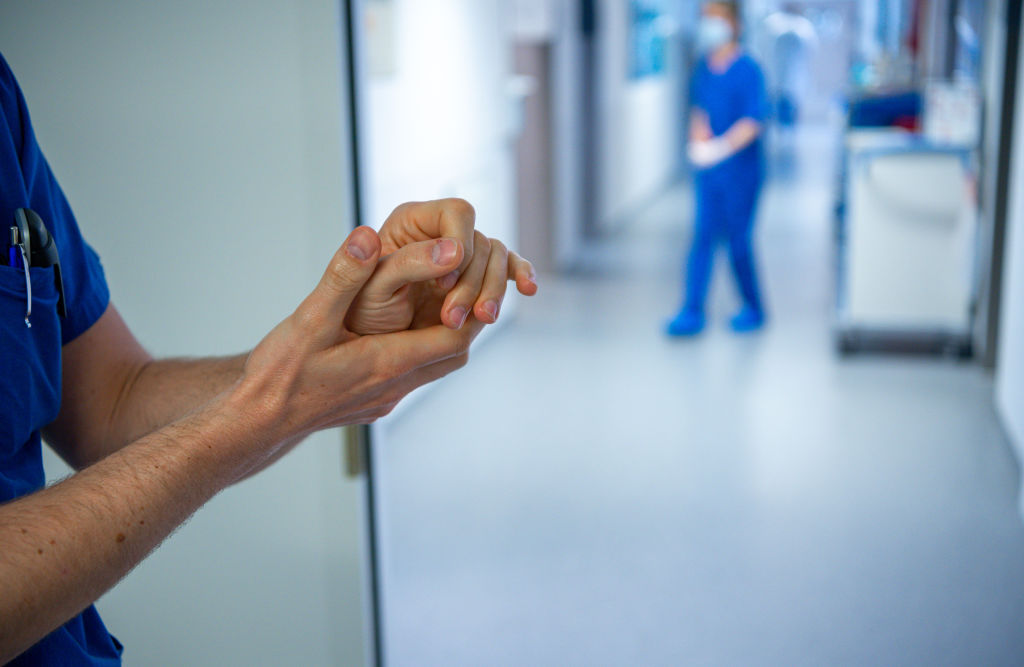I just spoke to my father for the first time in 16 days. He wasn’t able to speak back but the nurse told me that he smiled when he heard my voice. This is the first sign of consciousness we’ve had from him since he was sedated over two weeks ago to help his body fight the coronavirus that has been running through his veins.
During that time his lungs failed and a ventilator had to take over all of his breathing. A few days later his kidneys ceased to function properly and he was put on full dialysis. His muscles have atrophied and, even with the NHS angels who watch over him every day moving his limbs, his body has become weaker than it’s ever been before.
Since the weekend the doctors have been trying to slowly wake him up but he has been suffering from severe sedation delirium; a condition where the confusion and discombobulation of being brought out of such a long slumber turn to panic and distress. They had to re-sedate him several times and eventually resorted to slicing his neck open and inserting a tracheotomy so that he could wake without the sensation of tubes going down his throat.
It’s been a long few weeks but the nurse who we just spoke to was the most enthusiastic we have heard so far. The terms ‘knife edge’, ‘touch and go’ and ‘extremely ill’ have haunted us every time we’ve phoned the intensive care ward. Today we’ve started to hear ‘cautiously optimistic’ and ‘positive steps forward’. It’s terrifying to hope that he might be through the worst of the danger but there may now be a gently sloping upward journey to the sunny lit uplands of recuperation and survival.
As a young explorer 51 years ago my father was one of the founders of Survival International, the first and only global movement for tribal peoples’ rights. He is still their president and the charity have asked anyone who knows or has met him to send messages of support and encouragement. From around the globe, tribes in the Amazon, Borneo, Australia and India, to name but a few, have been recollecting the time they’ve spent with him over the decades. Each tribe is praying to its own deities for his recovery. We must have pretty well all of them covered by now.
This journey is still beset on all sides by danger and peril. He is in a hospital full of people who are struggling with this virus, many of whom also suffer from other health problems. Some of these will be just the kind of infections that would relish the chance to race through an octogenarian who is weak and vulnerable whilst on the ropes in the final bout of the fight of his life. MRSA, sepsis, shock. They all lurk in our minds and shadow our optimism and hope.
But we do have hope. His birthday is in five weeks and we have decided that the goal is to have him home in the garden by then. He will be 84 and, whilst we must be realistic about what a long recovery he will need, I know that having the fresh air of Bodmin Moor and the view of the meddler tree that sits next to his bedroom window will be a great tonic for his soul. Six weeks after that his newest grandchild will be born and I plan to shamelessly motivate his road to health by dangling the carrot of dandling his newest ‘grandling’ on his knee as our family spends the Summer isolated on the moors. If that doesn’t equip him with the mental pickaxe to dig deep and fight this pugnacious plague then nothing else will.
My mother and I phone the intensive care ward three times a day. They are busy and getting busier as beds fill up and more staff are having to self-isolate at home. She is usually on the point of tears and often I need to do the talking for her. The brave and selfless nurses have never once sounded tired, short-tempered or irritable. They answer our repetitive and mundane questions with patience, warmth and encouragement and always tell us that my father is getting constant care and love through his ordeal. They’ve asked us what his favourite radio station is so that they can play music to him and the last nurse we spoke to had just finished brushing the old explorer’s teeth for him.
There has been a lot of commentary and discussion over the last few weeks about what our society and economy might look like after this crisis has passed. Will we travel less and work remotely more? Will online shopping replace frequent trips to the high street? Will people be kinder to one another and pay more attention to their mental fitness? Whatever the outcome, one change is key; we must begin treating our NHS staff as they deserve, with appropriate pay, facilities, protective equipment, gratitude and love. In our time of need they have been just what our country needs.






Comments
Comment section temporarily unavailable for maintenance.